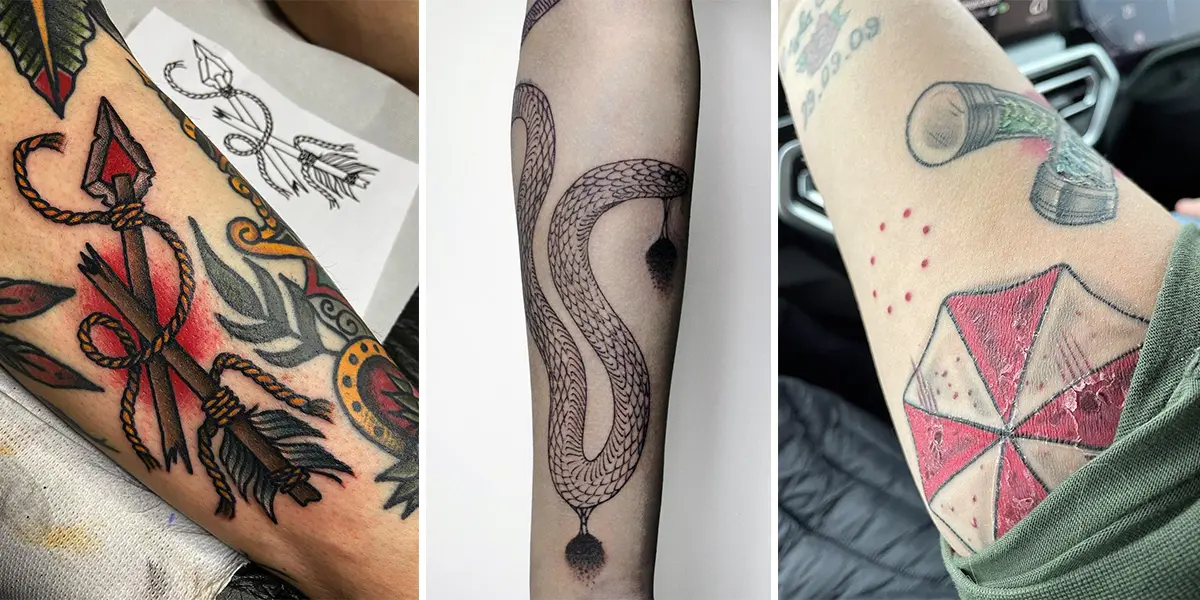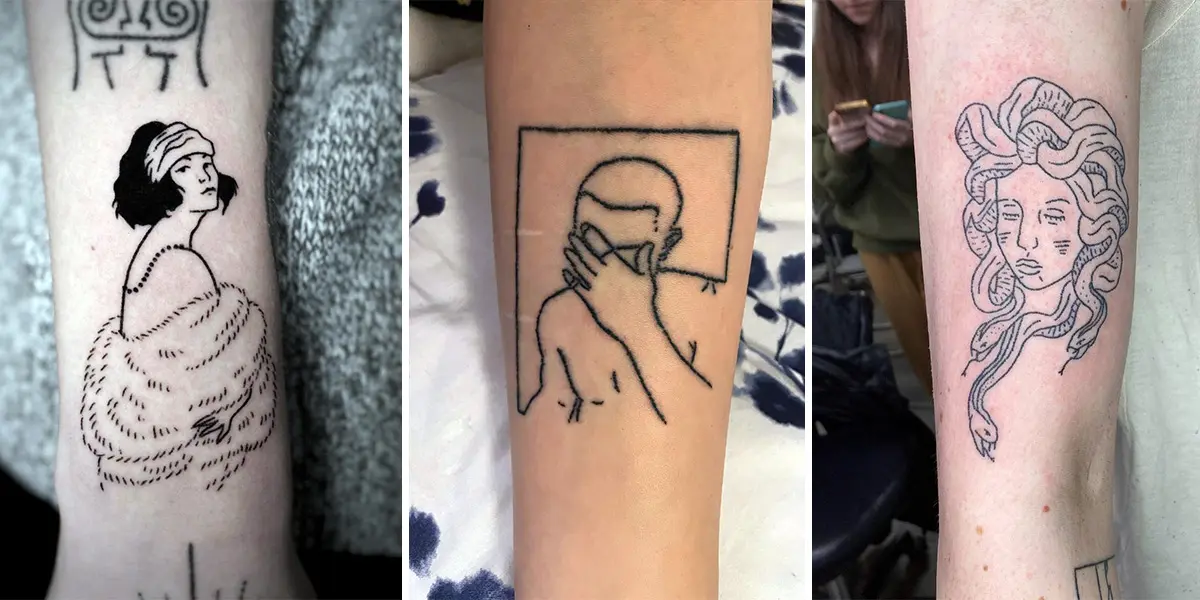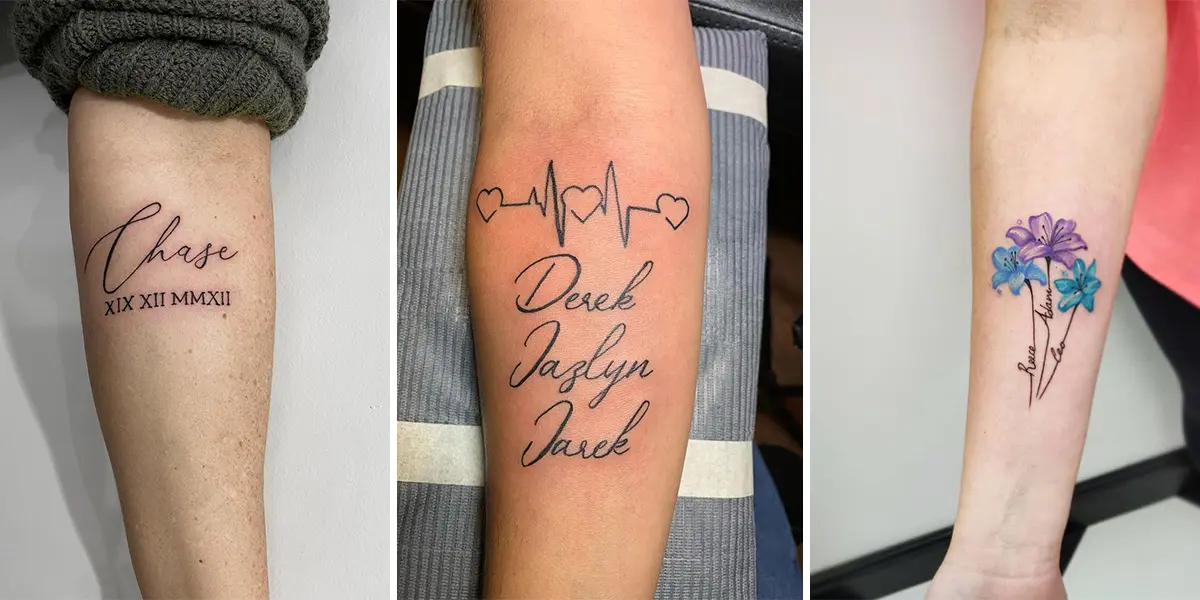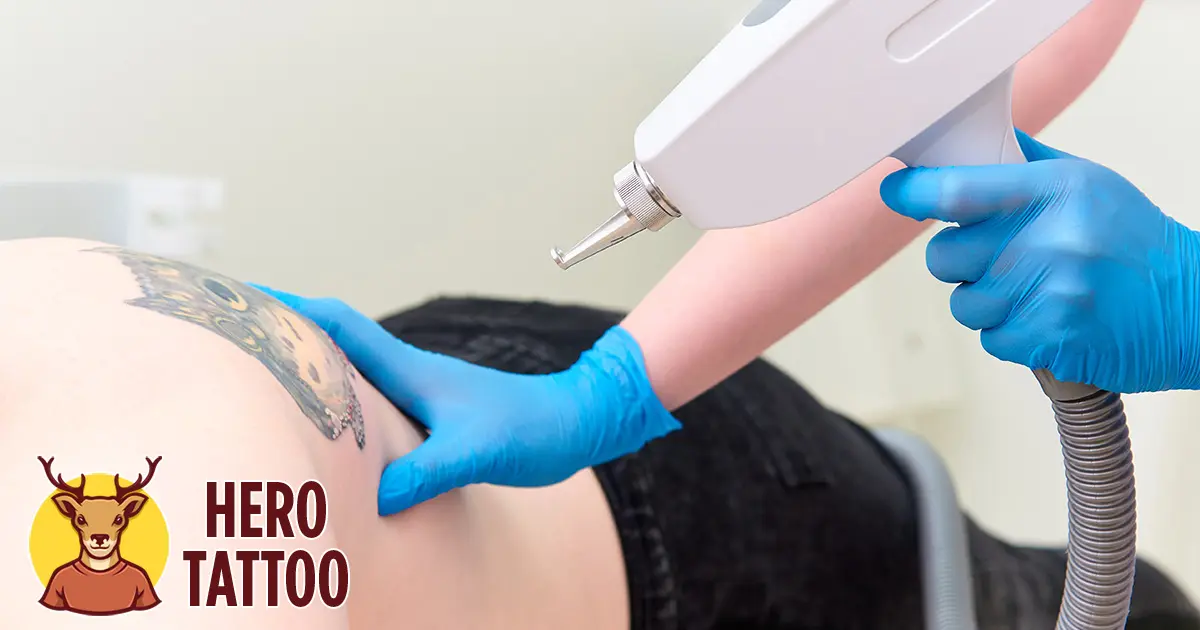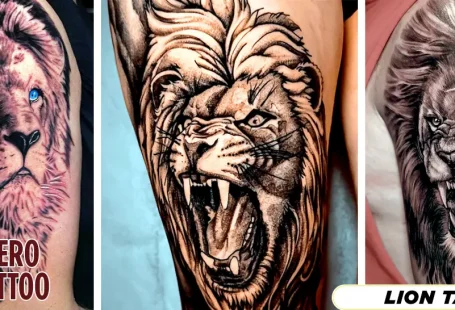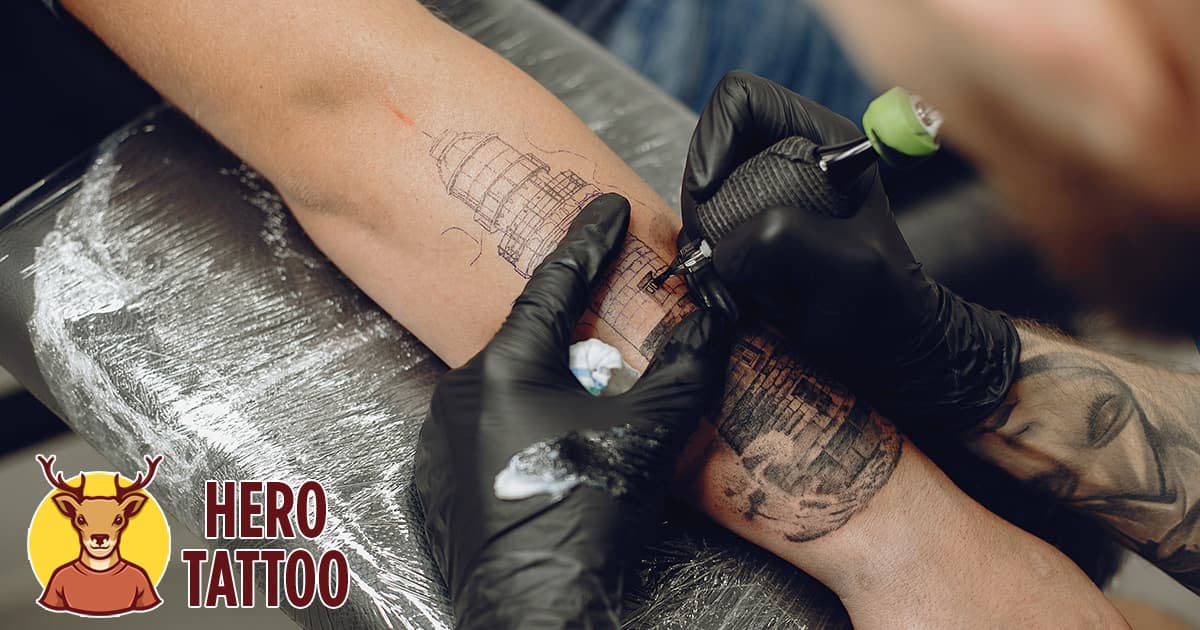It is natural to have pain and discomfort after having a tattoo done. In the end, you’re dealing with a form of an open wound that will require more time to heal correctly. The healing phase is when the pain and discomfort should begin to lessen. Typically, the healing process is accompanied by general pain, such as itching, skin peeling, the formation of new skin layers, and so on.
The question is, what happens when the discomfort persists and the tattooed skin begins to itch and rise in the process? Is this a standard component of the healing process or a symptom that anything is wrong?
In any case, that is precisely why we’re here: to look into all of the probable causes and explanations for why your skin becomes itchy and elevated after getting tattooed. With that said, let’s get started exploring and answering questions!
6 Reasons Your Tattoo Is Raised and Itchy
1.Infection caused by a tattoo
It is possible to get a tattoo infection anywhere between a few days and 2 to 3 weeks after being inked. A variety of factors can contribute to the development of the illness, including:
- Tattooing instruments that have been contaminated (tattoo guns, needles, etc.)
- Tattooing in a contaminated environment
- A tattoo artist is careless with his work (working without gloves, using contaminated tools, not working in a cleaned and disinfected environment, etc.).
- An ineffective aftercare regimen
- The use of petroleum-based products on tattoos is discouraged.
- Pets are allowed to share sleeping quarters with their owners.
- Failure to keep the tattoo dry (taking baths, swimming, exercising, and sweating)
- Not dressing in loose-fitting garments (fabrics sticking to the tattoo)
Some of the most prevalent reasons you could have a tattoo infection are listed below. Apart from elevated and itchy skin, other signs of a tattoo infection include redness and increasing discomfort levels, swelling, rashing, bleeding, and pus production, in addition to a fever.
If you develop any of the symptoms listed below and believe you may have been exposed to any of the scenarios listed above, as well as the surrounding environment, get medical assistance as soon as possible. You’ll be prescribed antibiotics and other appropriate medication, so always consult with a medical expert before taking any action.
2. Allergies to ink
Although it may come as a surprise, you may be allergic to tattoo ink and be unaware of it. Unfortunately, one only becomes aware of an allergy when it is too late; the tattoo has already been completed, and you are left with a raised, unpleasant, and itchy tattoo due to the reaction.
There are a variety of reasons why people develop an allergy to ink, including:
- According to recent research, more than 10% of unopened ink bottles are found to contain hazardous germs. Because the ink is classified as a cosmetic product, it is permitted to reach the market without any regulations or ingredient checks. Until it is too late, there is no way of knowing whether the ink is entirely risk-free or not.
- Dangerous metals and plastic have been used in ink. Because tattoo ink is not regulated and does not have a list of ingredients, many producers have added harmful metals and even plastic to increase the consistency and pigmentation of their product. This is especially true for inks that are yellow, green, red, and blue. Allergenic pigments are used to produce these inks, and the sources indicate that these inks typically include dangerous substances.
- Most of the time, people develop adverse reactions to tattoo ink, even when tattooists use high-quality ink. It is possible to have a general allergy for various reasons, ranging from the components in tattoo ink to an immunological reaction by your body to a foreign invader, which is, in this case, the ink.
- It is possible that your tattoo has been exposed to sunlight and that this has caused some ink allergies. When exposed to intense lighting, mainly sunshine, some inks have a tendency to react, which is primarily due to the components included inside the ink itself. Raised lumps and rashes appear due to this reaction, which causes the skin to become red and irritated. When exposed to sunshine, the most vibrant colors are yellow, blue, and red.
As you can see, the vast majority of ink allergies are caused by unknown ink components and the poor overall quality of the pigment used in the stain itself. Unfortunately, in addition to harmful metals and polymers, many inks contain colours derived from the same components used to generate automobile paint or prints, putting the public at risk.
Because the FDA does not regulate tattoo ink in the United States, there is no information available about the components of tattoo ink in the country. On the other hand, ink compounds that might induce allergic responses include aluminium, manganese, cobalt aluminate and chloride, carbon ink, lead chromate, zinc oxide, and a variety of other substances.
3. Skin disorders are a type of skin disorder that affects the skin.
Skin diseases are among the most prevalent causes of raised and uncomfortable tattoos, including acne and eczema. Whether you have dry or sensitive skin, or if you have eczema or dermatitis, any change in the appearance of your skin might be considered a skin disorder. Many individuals aren’t aware of this and believe that they are safe to get a tattoo on if they have dry or sensitive skin. However, this is not the case.
Before scheduling a tattoo session, you must visit a dermatologist and evaluate your skin. A dermatologist will examine your skin and provide you with a full report on its health and condition. The dermatologist will give you the green light to be tattooed if everything is in order.
A dermatologist can even forecast whether or not you will get skin cancer in the future and may advise you not to get a tattoo in the first place. Skin cancer symptoms and obvious indicators can be concealed by tattoo ink, which can be a serious concern on its own.
When itching and raised skin occur following the tattooing procedure, you should consult with your dermatologist to determine the cause of the problem. They will examine your skin to determine its kind and any underlying diseases, research the irritation, watch the skin swelling, and prescribe the appropriate therapy.
4. Having a magnetic resonance imaging (MRI) scan
This may come as a surprise to many people, but having an MRI done while having a tattoo done can cause the tattoo to become elevated and itchy. You might be wondering why.
Remember when we stated that inks include metals? That’s right. Magnetic forces can cause metal-based ink to react during an MRI scan, which can cause the ink to react. Metals are being drawn from the skin, causing swelling and the appearance of raised, itchy, and even blistering tattoos.
One such incident involved a man who was undergoing an MRI and suffered a second-degree burn due to the interaction between the ink and the magnetic resonance. Iron oxide, a metallic material, was used to create his tattoos. After reacting with the electromagnetic waves, the chemical caused horrific burns on the skin.
Your tattoo ink may respond negatively to an MRI if you’ve just had one performed and then have swelling and itching shortly after. In such an event, seek medical assistance and explain what happened to get you to this point; you will receive the correct treatment and hopefully recover quickly.
5. Variations in the weather
As the seasons change, your tattoo may alter as well. Even if your tattoo has completely healed, it may get somewhat elevated and uncomfortable due to irritations produced by temperature variations, humidity increases, and other similar events.
For example, during the summer months, you may notice mild skin swelling due to temperature fluctuations. Consequently, your tattooed skin may slightly expand, causing discomfort and itching on the surface. Scratching the skin should be avoided at all costs since it can cause skin damage and the introduction of microorganisms.
During the winter, on the other hand, you may notice an increase in the irritation of your tattoo. This is since cold weather tends to irritate and dry up the skin. In severe circumstances, you may also have rashes and skin peeling due to the exposure. It is essential to keep the skin hydrated and protected from the elements during these months.
6. The tattoo is merely healing at this point.
Consider the following scenario: you have a new tattoo and are concerned about the elevated and irritating skin. There’s a good likelihood that your tattoo is merely going through the healing process in this situation. A fresh tattoo is an open wound. As a result, it is normal for the skin to elevate and swell slightly after the procedure.
It is usual for your tattoo to begin to dry out after the swelling has subsided as part of the healing process. It will start to itch and peel more severely as the drying process progresses. This indicates that the new skin layer is developing and that the body is removing the skin’s surface’s old, damaged skin layer.
This is the situation for you, and you must avoid the temptation to touch, scrape, and peel the tattoo. This might cause the healing process to be prolonged, bacteria and germs to be introduced into the tattoo, and accidentally result in a tattoo infection.
You can make an effort to keep the tattoo clean and supple. It is recommended that you moisturize it up to twice a day to alleviate the itching and peeling.
After many days of swelling and itching, you should consult a medical practitioner and have your tattoo evaluated by a specialist. There is a high probability that you are dealing with an infection, which may be resolved rather rapidly with antibiotic therapy.
Finally, note that
If your tattoo is raised and itchy, there is a good possibility that something is wrong with it. However, it would be beneficial in determining if your tattoo is in this state due to external influences or as a result of an infection in the tattoo.
In either case, schedule an appointment with your doctor or a dermatologist to have a specialist examine your skin. It is preferable to have your tattoo evaluated as soon as possible rather than risk a severe infection and health problems. We hope you find our perspective valuable and instructive. However, you should seek medical advice to ensure that your tattoo and skin are completely safe.
